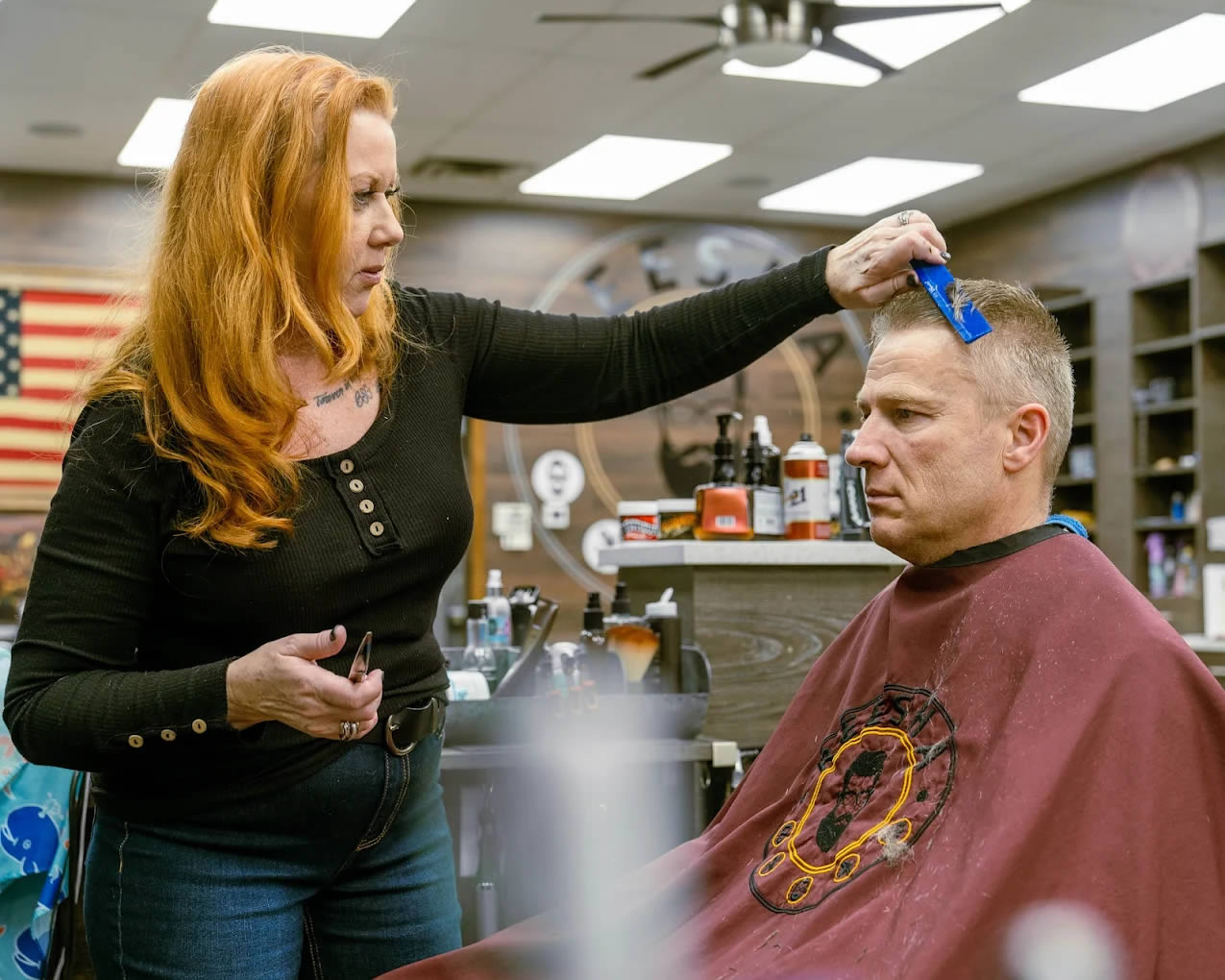
If you walk into any modern barbershop, you’ll hear the same question asked over and over: “Do you want a skin fade or a zero fade?” For anyone not already clued in, it’s a little confusing. Both cuts are sharp, clean, and tailored. But there’s a real distinction, and knowing it matters when you're in the chair. Reesha Barber is here to help. Every client should walk out with a haircut that actually fits their life. Keep reading if you want to understand how to choose the right fade, how to keep it looking fresh, and what to tell your barber to get the results you want.
A zero fade is a taper that starts with a zero guard on the clipper, so it cuts the hair extremely close to the scalp, but not quite down to bare skin. There’s still a faint trace of stubble left. It’s low-maintenance and gives that fresh-barber look. A skin fade, on the other hand, goes all the way down. Clippers are followed by a foil shaver or straight razor to remove every bit of hair at the base. It literally fades to skin. This creates the strongest contrast between scalp and longer hair, and requires precision. It’s a favorite for people who want their fade to pop, especially in high fades. Both styles require a skilled hand. An experienced barber with good technique will blend the fade into the rest of your cut so there’s no harsh lines. How much scalp shows and how bold the contrast is depends on which style you choose.
The best barbers will take into account your hair’s texture, growth pattern, and density before deciding how high the fade should start and how short to go. Thick, coarse hair usually fades well and gives clean contrast in both styles. If you have this hair type, a skin fade will look crisp and last a little longer before it starts to blur. Straight, fine hair can make zero fades look especially soft and natural, while skin fades might reveal more scalp than you’d like. That said, it depends on your personal style. If you’re going for edge, the skin fade works if you want something subtle but sharp, stick with zero. If you have curly or coiled hair, fades can help define shape, especially paired with a longer top. Hair growth direction matters too. A strong cowlick or swirl pattern may need more strategic fading to keep things even. Make sure your barber knows how your hair behaves when it grows out.
From sharp haircuts to detailed beard grooming, we offer a full range of premium barbering services. We offer expert haircuts, beard trims, and grooming services Each service is crafted with precision to keep you looking your best.
There’s more to a fade than how short the shortest part is. You also have to decide where it begins on the head. A high fade starts near the crown of the head. It gives maximum contrast and can make your face look more angular. It’s great for sharper looks and high-visibility styles. Skin fades are usually done as high fades for a bolder edge. A mid-fade starts at the temple or just above the ears. It’s a safe choice that suits most people. Zero and skin fades look great here, but it depends on how much contrast you want at the bottom. A low fade starts closer to the neckline. It’s more conservative and works well if you want a fade that blends into a beard. Zero fades at low levels look natural and are easier to maintain for everyday wear.
Fades don’t look the same on everyone, but they can showcase your best features if used well. Round faces look good with a high fade that adds height and structure to help elongate the silhouette. Keeping more volume on top also draws the eye upward. Oval faces benefit from a low to mid fade to balance things out. Avoid removing too much from the sides unless you're intentionally going for a dramatic look. Square faces already have strong angles. A skin fade can emphasize that strength, but a zero fade gives a softer touch and still looks clean. If you have a beard, fades can be customized to taper right into it to create a seamless blend that defines your jawline.
Skin and zero fades look best the first week after a cut. After that, the grow-out begins. Here’s how to keep it sharp:
Avoid trimming the fade yourself unless you really know what you're doing. A bad DIY touch-up can ruin a good blend and force a full reset next time.
If you start seeing an obvious line at the base of your fade, it’s time to go back. That’s the first sign the fade is growing out unevenly. Other signs are hair at the neckline getting fuzzy, sideburns losing shape, and the blend looking blurry or undefined. A zero fade might give you a little more leeway, especially if you’re brushing daily. Skin fades require a frequent refresh schedule if you want to keep that contrast.
Whether you want that ultra-clean bald fade or a subtle stubble finish, Reesha Barber will make sure you walk away with a cut that’s perfect for your hair and lifestyle. Our trusted barbers don’t rush. We’ll listen and deliver fades that look good from every angle. Are you ready to level up your look? Book your appointment today.
Shaving your head can be liberating. Whether it’s your signature look or you’ve come to terms with hair loss, a clean…
Read MoreSome people would argue that old-fashioned haircuts are making a comeback, but the reality is they never went out of fashion.…
Read MoreThe high & tight haircut is a clean, sharp style that features very short sides and back with slightly longer hair…
Read MoreYou just walked out of the barbershop with a perfectly shaped beard, but fast forward a week, and things are…
Read More